Updated 2:30pm August 20, 2022, to correct the misattribution of a quotation and to correct Tom Wald’s age.
Land code in spotlight in D9 race
Outgoing District 9 Council Member Kathie Tovo, who fought the CodeNEXT rewrite of Austin’s Land Development Code, could soon be replaced by a candidate with different views on development.
Tovo was president of the Bouldin Creek Neighborhood Association and vice president of the Austin Neighborhoods Council before winning her seat in 2011. Now Austin’s longest-serving council member, she earned a reputation as a defender of neighborhood character in zoning cases and in the larger fight over land use that polarized the council for years.
When the council majority was bent on passing CodeNEXT revisions to the Land Development Code she was on the losing end of numerous 7-4 votes to approve it. And it would have been made law had it not been for landowner litigation that brought a halt to the overhaul.
Eight candidates are vying to replace the term-limited council member, including five who reflect pro-density, pro-development views and three who don’t.
Among these are Zohaib “Zo” Qadri, a progressive who on his website denigrates Austin’s land code, which dates to 1984, as a “Reagan-era policy.”
In response to a questionnaire from the Friends of Austin Neighborhoods (FAN), Qadri criticized aspects of city’s current code, including “its restrictive minimum lot size requirements, setbacks, minimum parking mandates, and single-family-only zoning prescriptions.”
He called for “comprehensive and bold action on land use.”
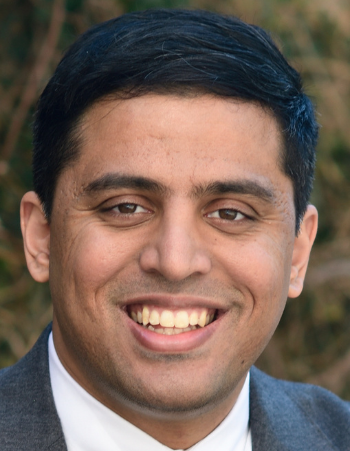
Qadri, 32, has held a slew of political jobs for Democratic candidates and consultancies over the past decade, making him one of the better connected candidates. He’s endorsed by Austin-area State Representatives Sheryl Cole, James Talarico, Donna Howard, and Eddie Rodriguez, as well as Mike Siegel and Julie Oliver, both former Congressional candidates and the co-founders of Ground Game Texas.
He not only has substantial endorsements but also has raised substantial sums to fuel his campaign, more than $68,000 to date.
Qadri is a child of immigrants from Pakistan who grew up in Victoria, Texas, before moving to Austin for university. “I have a lot of classmates of mine who graduated from UT and live in Austin and in the past few years have left because they can’t afford to live in the city as renters,” Qadri said in an interview with Texas Signal. “I think we are truly letting our people and community down. We need to build more housing, and build more affordable housing for low income families.” Qadri graduated from UT Austin with a bachelor of arts degree in 2013 and holds two masters degrees from Texas State University and Rice University.
Attacking the car culture
Joah Spearman is the founder of the 2013 startup Localeur, which publishes travel insights and guides, according to its website.

Spearman, 39, expressed views similar to Qadri’s. The 1984 land code and its 1928 predecessor “established segregation in our city and protected it to the detriment of our city for decades,” he wrote on his website.
The current council has taken some positive recent steps on land use, he said, including by allowing more accessory dwelling units in more places, and authorizing residential uses in commercial zones. But it’s still not enough. “Our city government has so-far been latent and reactive in maintaining affordability and housing supply,” he wrote.
Spearman has spent most of his career in the private sector but became increasingly active in civic affairs in the past few years, serving on various nonprofit boards and as vice chair of the Austin Music Commission. He has also written numerous essays on race, culture, and business.
Spearman wants to update the land code to allow more duplexes, fourplexes, and additional “middle market housing,” according to the FAN questionnaire. Like Qadri, he attacked the minimum parking requirements and called for public-private partnerships to reduce reliance on cars and boost incentives for the use of e-bikes and investment in bike lanes and bike parking.
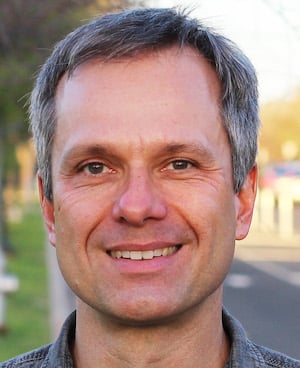
Spearman’s fellow candidate Tom Wald knows a thing or two about that. He was the executive director of Bike Austin, which merged with Walk Austin and Vision Zero ATX to form Safe Streets Austin, and advocated for better sidewalks and bikeways in Austin. Wald also founded a pro-transit nonprofit, the Red Line Parkway Initiative, which called for completion of a 32-mile trail along the MetroRail Red Line from downtown Austin to Leander. He served on the city’s Pedestrian Advisory Council and pitches himself as a candidate familiar with the inner workings of city government who can get things done.
Wald, 47, says housing affordability is the most pressing issue facing the city today. “Our city will become more resilient when we allow more types of housing that meet ownership and renter needs for different life stages and backgrounds in all parts of Austin,” he writes on his campaign website.
Wald through June 30th had raised almost $34,000 for his council campaign, placing him fifth among the six candidates who have raised any money at all. Spearman had raised more than $68,000.
‘Single-family home is a luxury’
For his part, Ben Leffler, a progressive and former policy aide to Council Member Chris Riley, agreed with many of the proposals of Spearman, Wald, and Qadri. “Many, if not most, of our housing and affordability issues are a direct result of our inconsistent, inequitable, outdated land development code, which subsidizes car dependence and incentivizes sprawl,” he wrote in the FAN questionnaire.”

However, he cautioned against oversimplifying the debate on the land code, which he called “a really complicated problem.” He said, “There isn’t a silver bullet or a magic policy to fix everything, but we could accomplish a lot by reducing minimum lot sizes, reassessing parking requirements, addressing compatibility, and raising the site plan threshold.”’
Leffler, 38, grew up in central Austin’s Crestview neighborhood, which at the time was home to “teachers, first responders, artists, and regular working people.” In the decades since, however, the neighborhood has become increasingly unaffordable and “my childhood experience (is) nearly impossible in today’s Austin.”
“The hard truth is that a single-family home with a yard is a luxury item in 2022, but if we prioritize people over buildings and cars, we have many tools to make Austin’s neighborhoods more diverse, inclusive, and sustainable,” he wrote.
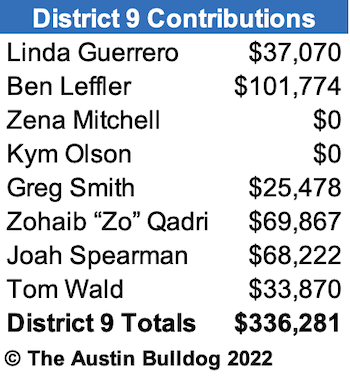 Leffler formerly worked for two years in the City of Austin’s Auditor’s Office. He holds a master’s in Public Affairs from the LBJ School. Leffler left the public sector in 2015 and pivoted into content design and user experience. In campaign materials, Leffler touts his policy experience and team skills, calling himself a “policymaker, collaborator and coalition builder.”
Leffler formerly worked for two years in the City of Austin’s Auditor’s Office. He holds a master’s in Public Affairs from the LBJ School. Leffler left the public sector in 2015 and pivoted into content design and user experience. In campaign materials, Leffler touts his policy experience and team skills, calling himself a “policymaker, collaborator and coalition builder.”
Leffler is also by far the leading fundraiser in the District 9 race, pulling in nearly $102,000 through June 30th. That tops the nearest rival candidate by more than $31,000.
Criticism of Tovo
Greg P. Smith, 57, one of the more conservative candidates in the race, shares some of the same views on land use, but also focuses on topics that his opponents have generally shied away from, such as city spending. For instance, on his campaign website, Smith cites concern over staffing shortages at the city’s public safety agencies and calls for a “top to bottom review of spending” by City Hall.
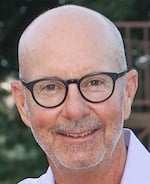
A self-described “very moderate Democrat,” Smith thinks the city’s affordability crisis is made worse by excessive fees on developers. He wants to reduce development fees and parkland fees for those that build affordable housing.
Asked by podcaster Brad Swail of the Austin City Councilman Podcast how he would differ from the outgoing incumbent, Smith said, “I would not stand in the way and be a cog in the wheel of the affordability crisis that I believe that she has been.”
“I think that she’s…intimately tied with these neighborhood associations, and the neighborhood associations need to understand there’s going to be some times where you lose… If this is a crisis, everything has to be on the table. We should be incentivizing developers (to build),” he said.
He later added, however, “I don’t want to give the impression that I want to just build, build, build and be as dense as you can possibly be. I want to strategically take the place that I know can be dense and provide some affordable options and use those to the best of our ability. That’s the compromise that I think that (we need).”
Asked by Swail about the proposed TIRZ incentives at the South Central Waterfront, Smith said he’s in favor of the developer incentives, arguing that they would ultimately lead to more property tax revenue. “I’m a pro economic development guy. But the developer needs to (include) the affordable units that the city believes are needed for those towers,” he said.
He was referring to a proposal by Endeavor Real Estate Group to build six high-rises on a 19-acre tract next to Lady Bird Lake, which is the largest undeveloped property in the South Central Waterfront District. The city has asked Endeavor to comply with a requirement in the South Central Waterfront Plan to include 20 percent affordable housing units, but Endeavor has thus far not agreed.
Smith formerly worked as director of golf at the Barton Creek Country Club and as general manager at the Spanish Oaks Golf Club. He then pursued a second career in the commercial insurance business.
While Smith isn’t campaigning on a shoestring, his total fundraising among the candidates of more than $25,000 through June 30th still places him ahead of only the two candidates who raised nothing at all.
‘People over profits’
Two candidates differ from the consensus on issues of land use. Suzanne “Zena” Mitchell, 59, is using the campaign slogan “people over profits” and proposes different solutions to addressing the affordability crisis.

“I strongly believe in homeownership, it has traditionally been the main way (that) middle class families have built equity, after paying on a mortgage for 20-plus years. But investors have started capitalizing on homeownership as investment properties,” she wrote on her website. “I do not support investors buying houses, and turning it over for 100 percent profit in less than one or two years. That is contributing to the rising cost of houses. My husband and I have walked most of the neighborhoods in District 9 collecting signatures to get on the ballot and I have seen vacant houses without rent or for sale signs. “
Mitchell proposes restricting AirBnbs, lowering the income requirements for the Mueller Affordable Home Program, and creating a citywide program to promote rent-to-own homes. Under rent-to-own arrangements, a portion of a renter’s monthly payments go toward equity in the home that they live in.
The candidate says she and her husband formerly owned a home in Austin but they sold it three years ago because they could no longer afford the utility bills and the cost of replacing a cast-iron plumbing system. Afterwards they moved to the Wildflower Terrace Apartments in Mueller, which is for people ages 55 and up. “It is the only way we didn’t get priced out of Austin.”
Mitchell currently works as a legal assistant, according to her ballot application, and formerly was a teacher at Northeast Early College High School.
She is one of two District 9 candidates who has raised nothing to pay for campaign expenses, but did spend $109 from personal funds to buy “Wacky Buttons” for advertising.
Growth skeptic
More politically connected than Mitchell is Linda Guerrero, a civic leader and school teacher. Guerrero, who will turn 68 in a few days, is the candidate whose views most closely match those of the outgoing incumbent. She’s endorsed by Tovo as well as Council Member Leslie Pool and former Council Members Ora Houston and Laura Morrison, Travis County Commissioner Brigid Shea, and former State Senator Gonzalo Barrientos.
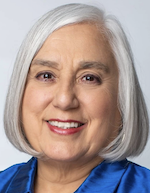
In a news release announcing her campaign, Guerrero said Austin’s rapid development was the source of many of its problems: “I’ve seen all sides of the development story, both the best and the worst… Our growth is explosive. In some ways of course that’s good, but it’s creating huge problems in affordability, transportation, public health, rising property taxes, and our quality of life. Dealing with those problems is the central task of the City Council in the years ahead.”
On her website, Guerrero promises to “support Austin neighborhoods” saying she previously “championed a number of neighborhood-based initiatives, including the adoption of the University Neighborhood Overlay, which brought thousands of students back to West Campus, while relieving development pressure on nearby neighborhoods.”
Of the eight candidates in the race, Guerrero poses the greatest threat to the urbanist, developer interests. Jack Craver, who writes the Austin Politics Newsletter, labeled Guerrero a “slow-growther,” a “preservationist,” and “Tovo’s anointed successor” in newsletters July 11th and 18th.
Craver, who supports an urbanist view of development, suggested that Guerrero could prevail in the race if the urbanist candidates split their share of the vote, boosting Guerrero to a runoff election. That situation would advantage her because younger renters in the district whom the urbanists rely on would be less likely to turn out, whereas homeowners supporting Guerrero would be more likely to vote in a runoff, he wrote.
Guerrero previously served as vice chair of the Hancock Neighborhood Association and as chair of its zoning committee. She also sat on several city advisory boards, including the Parks Board, Downtown Commission, South Central Waterfront Advisory Board, and the Environmental Commission. She has worked for 28 years as a school teacher and is currently employed by Austin Independent School District as a special educational instructor, according to her press release.
She also has deep roots in the community and is the daughter of Roy G. Guerrero, considered a “patron saint” of Austin Parks, and the man honored in naming the 400-acre Roy G. Guerrero Colorado River Metropolitan Park in East Austin.
Guerrero, who’s running her campaign while being a full-time school teacher, raised almost $37,000 by June 30th.
‘Meat and potatoes’
Another candidate to question the city’s rapid growth is Kym Olson, 50, who filed for a place on the ballot with just minutes to go before the August 22nd deadline. Although Olson has only recently entered the race and hasn’t publicly made clear her views on the land code, she told the Bulldog that she thought the city had bigger fish to fry and should focus instead on the basics.

Olson jumped into the race in part because she was “riled up” about crime, she said. “Basically, I think everything needs to go back a little bit to the meat and potatoes basics. We’ve had all these fancy plans and kind of forgotten about the basic roles and principles of city government, and health and safety is usually the top one that the city should be providing.” The city should ensure adequate funding for the police force, as well as EMS and mental health services, she said.
Asked about CodeNEXT and whether she’d support a denser, pro-growth revision of the land code, Olson questioned whether the city was making adequate investments in infrastructure to sustain such growth, including water, electricity, and roads. “It’s like we’re adopting an Enron-like business plan for expansive growth without basic infrastructure,” she said.
Olson has worked as a lobbyist at the state level, including for TC Energy, Texas Farm & Process LLC, and the Texas Trial Lawyers Association, according to state ethics disclosures compiled by Transparency USA. “I’ve just done policy work here and there around the Capitol in one form or another my entire life. I have a pretty good success record of getting reasonable policy passed,” she said.
Olson said she also provided unpaid advocacy services for the Texas Network of Youth Services, for which she served on the board. She is currently a public affairs officer for the Texas State Guard, which is one of three branches of the Texas Military Department.
CodeNEXT aftershocks
Debates around land use dominated council politics and election fights from 2015 to 2020 and triggered huge flows of developer money into the campaign coffers of cooperative candidates. The proposed overhaul, known as CodeNEXT in its initial iteration, would have boosted the density of parts of the city, with higher density along major corridors and transition zones between the major corridors and low-density neighborhoods.
Aspects of the rewrite triggered protests from neighborhood leaders, who feared that denser development would irrevocably alter their neighborhoods. Supporters argued that more housing supply would lower rents and home prices, while opponents questioned whether this was the case, instead blaming new development for gentrification and displacement.
After years of planning and debate, a seven-member council majority passed an overhaul of the Land Development Code on first reading in December 2019 and on second reading in February 2020. But State Judge Jan Soifer halted the effort in its tracks with a ruling that the city had failed to comply with notice and protest provisions of a state law protecting landowners affected by zoning changes.
The city appealed the decision but had to wait nearly two years for a decision, leaving the new land code in limbo. As the council waited, the issue faded somewhat into the background. The pandemic, Winter Storm Uri, and a series of battles over police funding and accountability demanded a greater share of the council’s attention.
The 14th Court of Appeals handed down its ruling March 17th, 2022, upholding Judge Soifer’s original decision and dooming hopes for a citywide overhaul of the land code. Under the court’s interpretation of the law, the council needs a three-quarters supermajority vote (or nine of eleven members) in order to pass a comprehensive overhaul of the land code over the objections of property owners. That seems unlikely for now as only two of the four council members who voted against the new land code are leaving office: Tovo and Ann Kitchen.
Still, the politics of land use remain important at the council as it regularly faces individual zoning cases and is still able to modify policies in a more piecemeal fashion. Although consensus on a sweeping citywide plan for rezoning remains out of reach, the different factions on the council recently came together to pass compromise legislation governing additional dwelling units and housing density bonuses.
This year’s council elections could determine whether the council continues this incrementalist approach or attempts a return to a more ambitious agenda. “I don’t think that we’re going to be in a place of a full scale rewrite right now. So we need to look for areas where we can work better as a council to find opportunities to build more in a way that is accessible for different areas of District 9,” said D9 candidate Leffler, in an interview with Texas Signal.
Mayor Steve Adler, a lawyer and real estate investor who supported CodeNEXT, will leave office at the beginning of next year. The soft-spoken Adler cultivated an image as a consensus-builder but presided over years of vitriolic fighting over the land code, until the court ruling in 2021 forced him to scale back his ambitions.
Other central protagonists of the CodeNEXT era have also left the stage, including Jimmy Flannigan, an Adler ally and a combative advocate for CodeNEXT, who lost his seat in a 2020 election, and Greg Casar, another supporter of land reform who stepped down earlier this year to run for Congress.
As new players take the stage, they face a different legal environment but many of the same political pressures and challenges. Rents and home prices in Austin have skyrocketed and the city increasingly is gaining a reputation as one of the least affordable cities in the country.
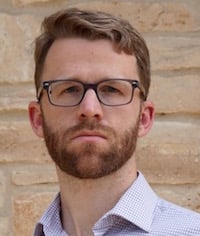 Trust indicators: Bulldog reporter Daniel Van Oudenaren is a journalist with 13 years experience in local, state, and international reporting.
Trust indicators: Bulldog reporter Daniel Van Oudenaren is a journalist with 13 years experience in local, state, and international reporting.
Related Bulldog coverage:
Let the mayor and council campaigns begin, August 22, 2022
Delgado will not be on the District 3 ballot, August 18, 2022
Half the mayor and council candidates haven’t file for a place on the ballot, August 18, 2022
Cosmetic executive runs for mayor on message of unity, ‘cooperation’, August 18, 2022
D3 candidate Delgado disqualified but seeks reinstatement, August 12, 2022
Candidates have voting records too, August 11, 2022
Political shift on council undercuts land-use lawsuit, January 19, 2021
Developer dollars flow to favored council candidates, August 27, 2021
Zoned Out: The Legacy of CodeNEXT, September 3, 2019
Tovo shoots for third term, February 18, 2018
CodeNEXT opposition organizing in earnest, October 10, 2017







